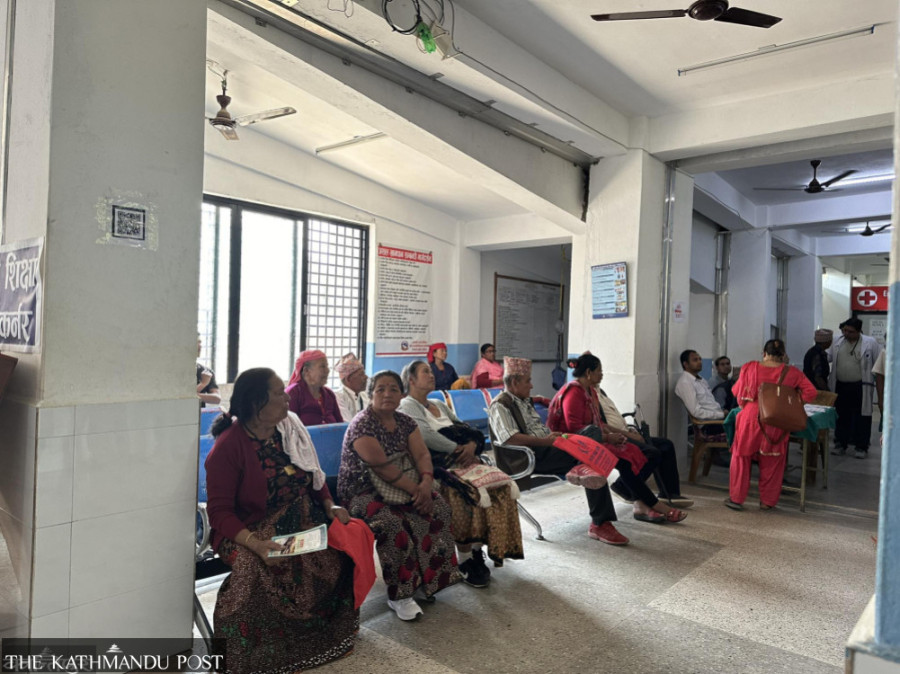Editorial
Free, but not
Medical establishments are widely abusing the provisions of free medical services and medicines.
The 2015 constitution guarantees basic health services for every Nepali citizen. The Public Health Service Act, 2018 specifically outlines these services, including immunisation, maternal, infant and pediatric care, free delivery, family planning measures, and tuberculosis medicines. Such policies not only aim to reduce the economic burden on citizens but also save the lives of economically vulnerable people. But then there is a huge gulf between these policies and their actual implementation.
Recently, certain private hospitals, medical colleges and community hospitals have been found to be exploiting patients by forcing them to pay for services the government has pledged to provide for free. They first collect fees for these services from patients and then claim reimbursements from the Family Welfare Division and the government’s health insurance programme—essentially collecting the payment twice. (The health ministry and the Health Insurance Board reimburse the costs of treatment and free programmes.)
The oversight needed to check these kinds of malpractices is nowhere to be seen. Following complaints from patients, the division, which operates under the Department of Health Services, has urged the Ministry of Health and Population to intervene. But these incidents are not new. Profit-hungry institutions have often manipulated the country’s healthcare system to maximise profits while adding to people’s financial burdens, yet satisfactory regulation of these practices remains a far cry. During the Covid-19 pandemic, nine private hospitals that had initially pledged to provide free treatment to Covid-19 patients were found to be breaching the agreement while also collecting reimbursements from the ministry. Moreover, even as the government requires private hospitals to provide 10 percent of their beds to poor and underprivileged patients, reports of non-compliance with such rules continue to surface with troubling frequency.
The continuation of these unscrupulous acts not just erodes public faith in the country’s medical establishments and, with it, on the government at large. It also undermines the country’s achievements in healthcare. The number of healthcare facilities flouting the rules could be much higher, as not everyone reports the issue. And many patients may not even be aware of the free services available at private health institutions and community hospitals. In order to improve things, empowering citizens through public awareness campaigns would go some way in holding private hospitals, medical colleges and community hospitals accountable.
Initiatives like revising the guidelines to prevent hospitals from overcharging patients and implementing a one-door policy for free programmes to avoid duplication in billing, which the health officials are currently working on, are welcome. However, guideline revisions and new policies alone won’t suffice unless complemented by strict enforcement. So it is vital to strengthen monitoring at all private medical facilities across the country and ensure that those who breach the rules face severe consequences—financial penalties or even revocation of operating license.
Despite Nepal’s significant strides in health in the past decades, studies show exorbitant medical costs push half a million Nepalis into extreme poverty each year. Almost a third of Nepali households spend more than 10 percent of their yearly income on health. These numbers are staggering. If private healthcare institutions and community hospitals—which purport to provide top-notch service to people—can be made more accountable for their actions, people’s healthcare burden will be significantly reduced and healthcare in Nepal will be within everyone’s reach.




 18.12°C Kathmandu
18.12°C Kathmandu













